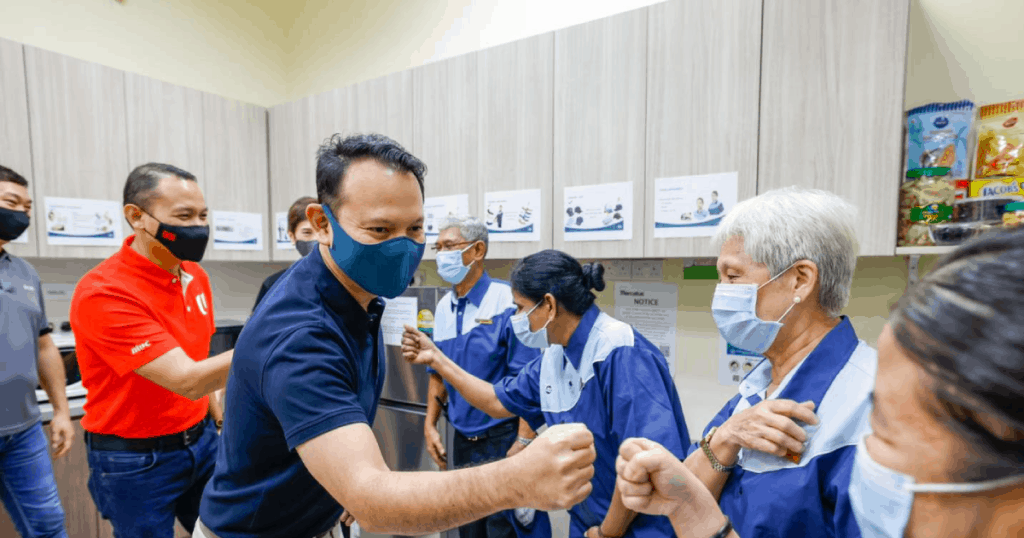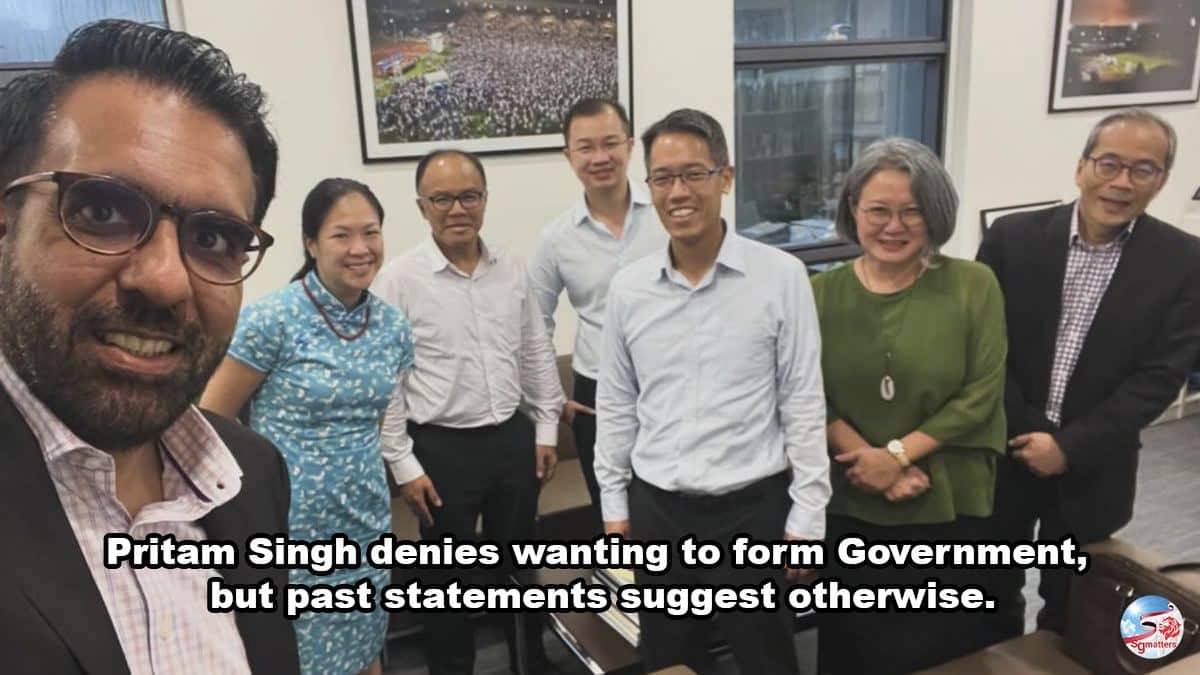Can you imagine if all essential work such as waste management and cleaning services stopped for a day? I can’t. The Covid-19 pandemic has cast the spotlight on our essential workers. Our essential workers provide services that are indispensable to most of us but often they do not get the respect and recognition they deserve! How can we come together to make a difference? Can everyday Singaporeans like us partner with the Government, employers and unions to shape the future of these vulnerable workers?
The Alliance for Action for Lower-Wage Workers, comprising unionists, corporates, representatives from community organisations and youth leaders have been hard at work looking into how we can better support our lower-wage workers. Their aim? To improve working environments for low-wage workers, encourage the public to show appreciation for them, and help them to level up through improving their skillsets.
“Simple things, like the graciousness of people towards lower-wage workers in the essential services space, that’s something I think we noticed and identified as areas that we need to influence.” Ms Lim Huishan, general manager at FastJobs, who is also a member of the alliance
Since the Alliance for Action for Lower-Wage Workers (AfA for LWW) was formed earlier this year, its members have worked with the community to develop initiatives to uplift our lower-wage workers. The AfA for LWW members have spent months reaching out to lower-wage workers and developing ideas to uplift them. Here are but a few of these ideas!
- A campaign to encourage consumers to show solidarity with lower-wage workers by paying more for goods and services
- A programme for youths to co-design rest areas for lower-wage workers in their school premises
- A guidebook on implementing rest areas for lower-wage workers in shopping malls
- A community campaign to encourage Singaporeans to get to know essential workers, and thank them for their efforts
Now, how can employers do their parts to ensure that our lower-wage workers are taken care of?
If they are keen to set up or improve rest areas for their essential services workers, employers can apply for the Workcare Grant. This will cover up to 80% of costs incurred from creating a new rest area, which will be capped at $8,000, or improving an existing rest area, capped at $3,000.
As security officers, cleaners and landscape maintenance workers often work at their service buyers’ premises, having access to proper rest areas will go a long way in uplifting their welfare and showing care for our essential workers!
“There’s a water cooler, microwave oven, fridge, and it is air-conditioned. Sometimes, I bring my own food so I can spend my one hour of rest here without having to run around to buy food,” said Mr Asari Manchong, 68
Mr Asari Manchong, 68, a cleaner from ISS Facility Services who is stationed at Jurong Point, said its rest areas are very comfortable.

While the pandemic has hit our lower-wage workers hard, government schemes have helped to mitigate the impact to some extent. This was a result of policies such as the Progressive Wage Model (PWM) and Workfare to support lower-wage workers. In Parliament on July 27, MP Mohd Fahmi Aliman also shared that more should be done to show appreciation for lower-wage essential workers and migrant workers, for their contributions during the COVID-19 pandemic. He reiterated a call for the Government to expand the Workfare Income Supplement Scheme by lowering the age eligibility to 30 and increasing the payout for essential workers.
Meanwhile, the PWM ensures that employers pay lower-wage workers progressive wages and provide structured career pathways for their wages to rise along with improvements in their skillsets, and productivity levels. The PWM is currently mandatory in the outsourced sectors of cleaning, security and landscape maintenance. It was also announced last week that landscape maintenance workers will see their minimum basic wages rise by 6.3% a year on average, over six years. The wage increases will take effect over six years from July 1, 2023, and benefit more than 3,000 Singaporean and permanent resident landscape workers.
As the PWM is rolled out to other sectors, it is important to get the public’s support as well. Will you as a consumer bear a bit of the cost that comes with uplifting our lower-wage workers e.g. paying a bit more so our cleaners and security officers can get higher wages?
Uplifting our lower-wage workers requires a whole-of-society effort where support from the Government, employers, unions, and everyday Singaporeans is key. It is only right for us as a society to bring our vulnerable along with us as we progress, and hopefully one day, we can be more inclusive and gracious in the way we support our lower-wage workers.
*Cover image via





